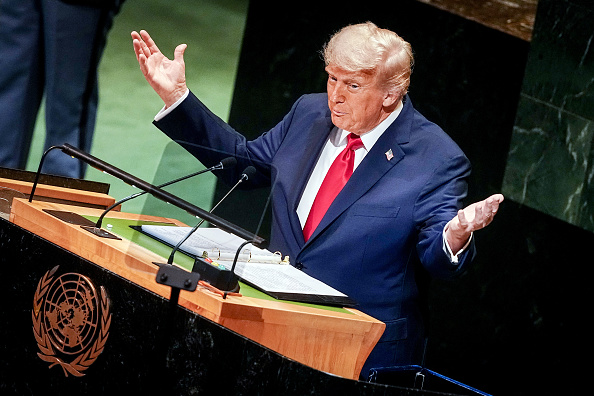In a dramatic escalation of his protectionist trade agenda on Thursday, U.S. President Donald Trump announced a sweeping package of new import tariffs, including a 100% duty on branded pharmaceuticals. The move, unveiled on Truth Social, reignites global trade uncertainty following a period of relative calm and throws Ireland’s economically outsized pharma sector into crisis management.
The announcement left key questions unanswered, notably whether the new duties would compound existing national tariffs, and how they would dovetail with the existing EU-US trade agreement.
Trump stated that the 100% pharmaceutical tariff would apply only to companies that have not yet begun construction of U.S.-based manufacturing facilities.
The announcement comes amid a wave of investment by global drugmakers, including Switzerland’s Roche, which has confirmed that a U.S. subsidiary had broken ground on a new plant.
Ireland surged exports
Ireland, home to a significant concentration of American-owned pharmaceutical factories, had already responded to Trump’s tariff threats by accelerating exports.
According to Ireland’s Central Statistics Office, exports of chemical and related products surged 536% year-on-year to €23.9bn in the first seven months of 2025.
Euractiv asked the White House and the US Department of Commerce to clarify if the tariffs will apply to EU companies which have not broken ground on new projects in the United States, despite the 15% tariff agreed in the EU-US deal. Neither had responded at the time of writing.
On Wednesday, the Trump administration formally enacted the trade agreement with the European Union, publishing a notice in the Federal Register reducing tariffs on a range of imports, including generic medicines, and marking a significant shift in transatlantic economic relations.
Irish government blindsided
Simon Harris, Ireland’s foreign minister, was left blindsided after returning following meetings in both New York and Washington, where he met with US Secretary of Commerce Howard Lutnick.
This morning, Harris said that he remained “as convinced as ever of the mutually beneficial nature of the dynamic, two-way economic partnership between Ireland and the US, as well as between the EU and the US.”
A spokesperson for Ireland’s Department of Foreign Affairs and Trade referred Euractiv to a statement by the Irish foreign minister saying that following President Trump’s overnight announcement, “We will be studying the impact of this announcement, which includes a number of exemptions, together with EU colleagues.”
“I want to stress, however, that the EU and US Joint Statement issued on 21 August last made absolutely clear that any new tariffs announced by the US on pharmaceuticals under its Section 232 investigation would be capped at 15% for pharma products being exported by the EU.” He added, “This remains the case and underlines again the value of the agreement reached last month.”
Pharma sector still processing
Ireland’s pharma industry was still processing the overnight announcement.
The Irish Pharmaceutical Healthcare Association (IPHA) told Euractiv: “As we have previously stated, tariffs on medicines would be harmful. They would increase costs, disrupt global supply chains, undermine innovation, and ultimately harm patient access to life-enhancing medicines on both sides of the Atlantic. They undermine the global trading environment that supports jobs, investment and competitiveness.”
Olof Gill, European Commission Deputy Chief Spokesperson said the EU-US Joint Statement makes clear: “The United States intends to promptly ensure that the tariff rate, comprised of the MFN tariff and the tariff imposed pursuant to Section 232 of the Trade Expansion Act of 1962, applied to originating goods of the European Union subject to Section 232 actions on pharmaceuticals, semiconductors, and lumber does not exceed 15%.”
Gill said that “This clear all-inclusive 15% tariff ceiling for EU exports represents an insurance policy that no higher tariffs will emerge for European economic operators. The EU is the only trade partner to achieve this outcome with the US,” adding that “The EU and US continue engaging towards implementing the Joint Statement commitments, while exploring further areas for tariff exemptions as well as wider cooperation.”
According to Reuters, analysts view the latest actions as part of a strategic pivot by the Trump administration toward more established legal frameworks for imposing tariffs.
The shift comes ahead of a landmark Supreme Court hearing scheduled for November 5, which will examine the legality of Trump’s sweeping global tariff regime – a cornerstone of his economic and trade policy.
[VA]
